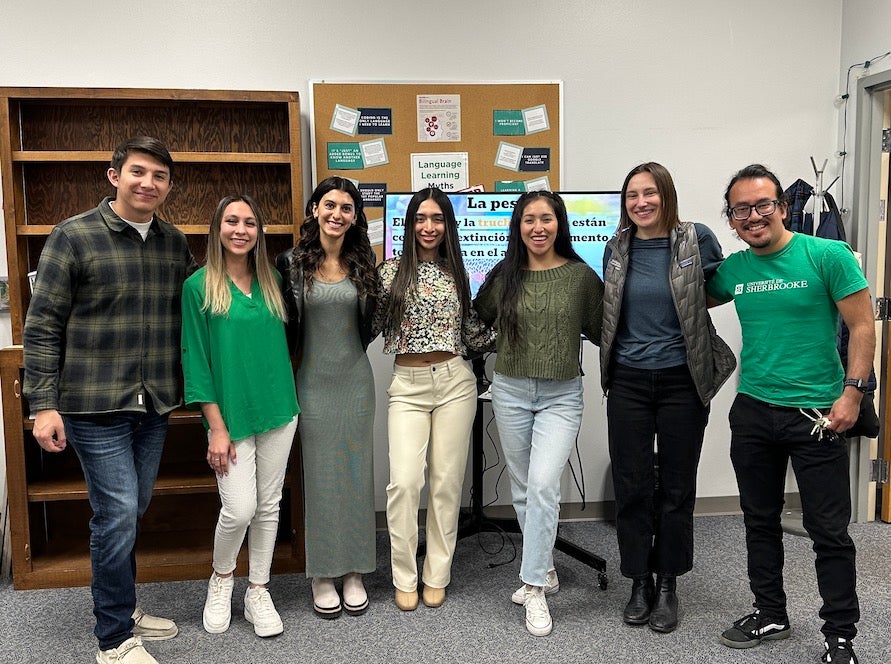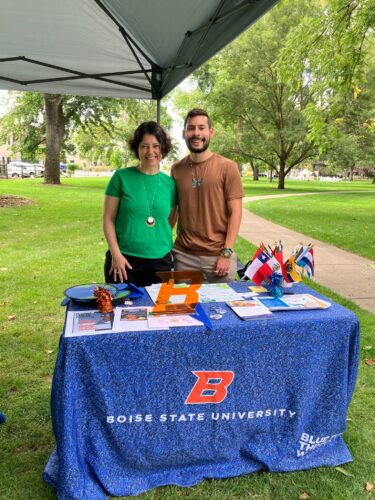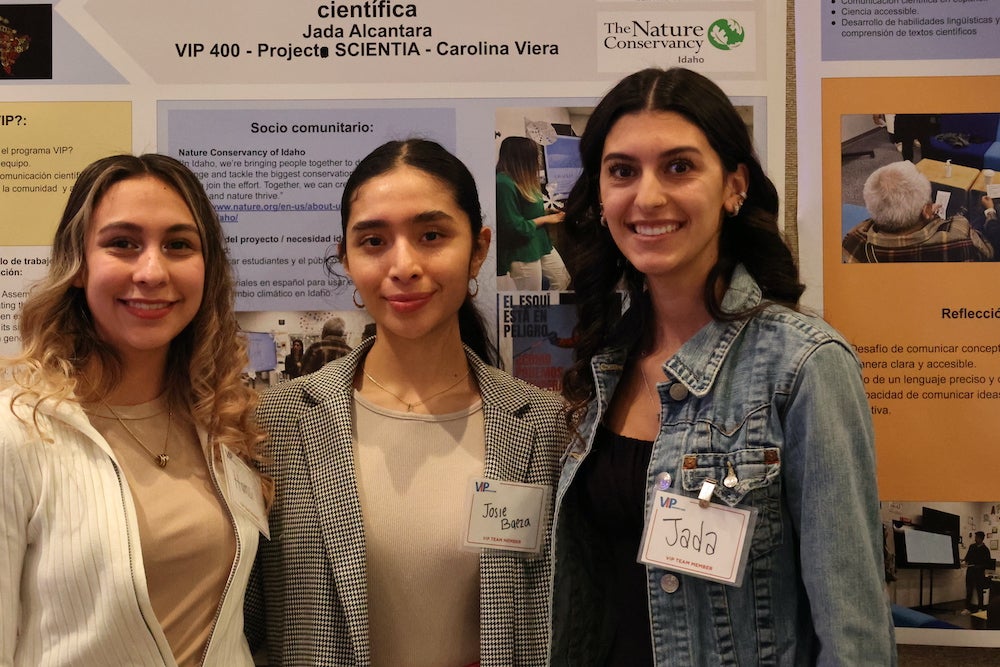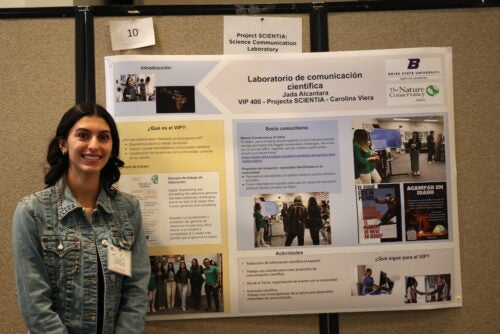
In the United States, Spanish is the second most spoken language, and today, Spanish speaking communities are increasingly empowered in their use of language. In an interconnected world, effective communication is essential, making bilingualism and cultural sensitivity more important than ever.
Boise State’s Vertically Integrated Project, Project Scientia (pronounced ‘ski-ent-ee-ah’), is supporting the empowerment of Spanish speaking communities across the state. Taking its name from the Latin word for “science,” Project Scientia aims to make research and creative activities accessible to these communities by leveraging the skills and talents of undergraduate and graduate students and faculty.
Student team members are tasked with translating science materials – not just into a different language but for a different purpose, as program director and professor Carolina Viera emphasizes. Students work directly with researchers, nonprofits and educators to disseminate materials to the Spanish speaking community, inviting participation from students of all backgrounds and majors.
By leveraging their language skills, Boise State University’s Project Scientia students are paving the way for future generations to advocate for themselves and their communities to combat a history of discrimination targeted at the Spanish language. Devoted to making science accessible, the group aims to ensure that everyone has the opportunity to engage with the critical issues that impact their lives.

Second year engineering doctoral student Juan Rengifo Guzman is the graduate lead on Project Scientia. Originally from Colombia, Rengifo Guzman is passionate about utilizing his language skills to make science more accessible to Spanish-speaking communities.
With experience translating materials between Spanish, English and German, he notes, “Having translated stuff and being able to speak more than one language gives me a more open mind at the time of tackling logic problems, because I have a way to see things differently.” As the graduate lead of the project, he hopes to help students grow their skills and confidence in Spanish communication.
“The only milestone [I have] is that students feel comfortable with their Spanish and science communication,” Rengifo Guzman said. “I just met one of the students…and she’s a little bit shy about her Spanish because she has just spoken it at home. I think one of the milestones is to help her empower herself.”
Students involved in Project Scientia come with varying levels of fluency in Spanish. Through the project, they gain valuable science and professional communication abilities while increasing their multicultural awareness, as the group comprises students from diverse backgrounds, fostering teamwork and communication skills.
Beyond enhancing communication skills, students emphasize the meaningful impact of their experience on community activism and professional development.

“Before I came to the U.S. and I met Carolina and worked on the project…I never saw my language skills as a way that would get me more job opportunities and more education opportunities,” said Josie Baeza, a senior majoring in Spanish and health sciences and an aspiring lawyer. “After I was able to participate in Project Scientia, I saw other opportunities that I had as a Spanish speaker.”
Junior Joselyn Gutierrez, who is studying materials science and engineering, highlights the intersection of communication and community engagement.
“When you’re doing this project, you’re helping others so it combines a lot of great things from speaking Spanish to improving science communication or just being able to connect with the Hispanic community,” Gutierrez said.
Participants have engaged in the community at local and national levels. Boise State graduate and former Project Scientia participant Julián Arreguin Vega discussed the project on KTVB, Idaho’s largest media organization.

Senior Jada Alcantara also shared her experiences on Public News Service, a national newswire, emphasizing the importance of science communication in Spanish. Alcantara, studying health studies and Spanish, recalls her work with Idaho farmers to raise awareness about the risks associated with pesticide exposure.
She expresses her gratitude for the opportunity to use her Spanish speaking skills to positively impact the community. Alcantara says that her involvement in the project has also exposed her to new cultural knowledge and experiences. While she does not consider herself a part of the community, she is committed to advocating with the Hispanic and Latino community in pursuit of a more accessible world.
The team actively participates in the National Science Foundation’s Established Program to Stimulate Competitive Research projects GEM3 and I-CREWS to create educational materials in Spanish. They recognize that research on energy and water benefits society as a whole, and should be as accessible to all. Project Scientia also collaborates with the Nature Conservatory of Idaho to discuss the effects of climate change in Idaho and collaborated with a multidisciplinary team to enhance public health for farmers in the Latinx community in Idaho.
As the students continue to utilize their languages for the purpose of science communication, they hope to inspire others to join the cause.
Rengifo Guzman says it is powerful for Spanish speakers to “Acknowledge the importance of having this second language.”
Baeza adds, “It’s really important to use those skills to help our parents, to help the people in our community, to see what’s happening and to communicate…”
Gutierrez acknowledges that it can be intimidating to try new things, especially in Spanish translation and interpretation.
“For someone who is in a similar position as me where we’re not as confident with speaking Spanish, I would say do it anyway because the whole process is how we’ll be able to improve,” said Gutierrez.
As the students of Project Scientia continue their important work, they not only develop their own skills, but also help create a more inclusive and informed community. Their commitment highlights the role language has in community empowerment, bridging divides in science and raising awareness of pressing issues.
This publication was made possible by the NSF Idaho EPSCoR Program and by the National Science Foundation under award number OIA-2242769.
- Written by Zenaida De La Cruz